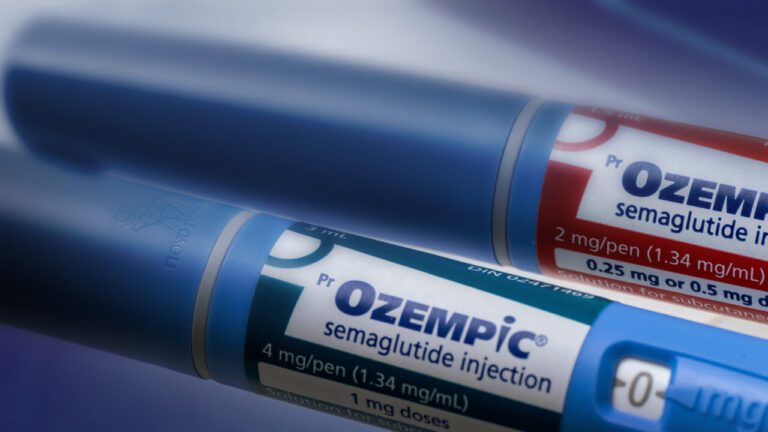
Articles
Stay up-to-date with the latest in law! Check back for our latest victories, litigation updates, recent awards and firm news.
Victory Against Company Selling Kids Suicide Chemical
Beasley Allen, along with its co-counsel C.A. Goldberg, PLLC, recently secured a win at the motion to dismiss stage on behalf of four families. These…
Judge Denies J&J’s Bid to Disqualify Beasley Allen
On July 19, 2024, Judge John Porto of the New Jersey Superior Court ruled that J&J had not provided “any credible basis” for its claims…
PSA for PFAS Water Settlements, Next Steps For Opt-Outs
Significant progress has been made in the ongoing AFFF multi-district litigation (MDL No. 2873), overseen by the United States District Court for the District of…
Blockbuster Diet Drugs Linked to Blindness
Diet drugs have skyrocketed in popularity and are no stranger to scary side effects. In 2017, Novo Nordisk introduced Ozempic as a treatment for type…
Pure Poison: Paraquat Ban Pushed in California
Paraquat is a very strong weed killer that has been used for more than 60 years. Even though it’s very dangerous, it’s still popular for…
Gearing Up For Trial Against General Motors
This is the latest in our class action chronicles. We are currently representing Colorado residents who own or lease a 2011-2014 GM truck or SUV…
$162 Million Rollover Settlement – The Largest in Georgia for a Single Automobile Accident
In 2021, a heartbreaking event occurred when a van transporting 16 members of the We Are Living Proof community to a meeting in Georgia was…
Highways, Heavy Trucks, & Heightened Dangers
The American highway system stands as a testament to engineering prowess, a complex network that has been a backbone for trade and travel for years….
The Final Countdown for Camp Lejeune Claims
If you or a loved one have been affected by the toxic exposure at Camp Lejeune, it’s crucial to act fast. The deadline to submit…
The Shadow Behind the Leaf: Combatting Kratom
Kratom- The gas station drug that has turned into a billion-dollar industry in the U.S. Kratom is a plant native to Southeast Asia, known scientifically…
Fun Turned Fatal: Lawsuit Filed After Deadly Buckhead Shooting
Nightclub Nightmare- In the heart of Atlanta’s vibrant nightlife, a senseless tragedy unfolded. The Elleven45 Lounge, a popular Buckhead hotspot, became the scene of a…
Fuel Pump Fiasco: Refueling Clients with Millions in Settlements
Our team is dedicated to holding car manufacturers responsible. We have secured hundreds of millions of dollars for our clients/consumers in recent automobile fuel pump…
Enough is Enough: New Proposed Class Action Filed Against J&J
A group of ovarian cancer victims has taken a stand against Johnson & Johnson by filing a class action lawsuit. These courageous individuals, having already…
Lawsuit Filed For Local Lumber Company After Contract Breach
Our Mobile Office recently filed a lawsuit on behalf of Swift Lumber against Accelerant Insurance Company et al. due to a bad faith breach of…
Hair Relaxer Clients Share Their Stories on NBC Nightly News
“It made me feel like my womanhood was taken away.” This month, the in-person interview with five of our hair relaxer clients aired nationally on…
PFAS Contamination Hits Home, Maxwell Air Force Base Heavily Affected
The per- and polyfluoroalkyl (PFAS) contamination crisis is inching closer to home. Just 3 miles down the road in Montgomery, Alabama, Maxwell Air Force Base…
Steps Forward in Social Media Litigation: Bellwether Trials Scheduled
We began filing social media personal injury lawsuits in 2022 and continue to lead the charge. Our law firm now represents hundreds of individuals, schools…
Righting Wrong: Case Filed After Dump Truck Overturns, Kills Client
Our Mobile Office recently filed a wrongful death case after our client was injured, and ultimately killed by a dump truck rollover. What is a…
Federal Judge Greenlights Brake Defect Lawsuit Against Ferrari
We filed an amended class action complaint against Ferrari for a serious safety defect in numerous vehicles equipped with defective brake booster/master cylinder assemblies manufactured…
Fanning the Flames: AFFF Litigation Heats Up
Aqueous Film-Forming Foam, or AFFF, is a type of foam used to put out fires, especially those caused by flammable liquids. It’s been helpful for…
Securing the Future: Importance of Car Seat Safety
Car seats, when used correctly, can significantly reduce the risk of injury or death in the event of an accident. However, with so many options…
Cheating Victims: J&J’s Third Bankruptcy Attempt
A shocking, but not surprising, new legal strategy from Johnson & Johnson (J&J). They are encouraging unsupported claims in exchange for votes on a payment…
Navigating The New PFAS Safety Standards In Drinking Water
On April 10, 2024, the Environmental Protection Agency (EPA) made a landmark announcement regarding the safety of our drinking water. The agency has established new…
Alabama Opioid Settlements: $728 Million & Climbing
The opioid epidemic swept across the United States, leaving a trail of addiction, overdose, and death in its wake. Alabama iscommitted to making the companies…
























